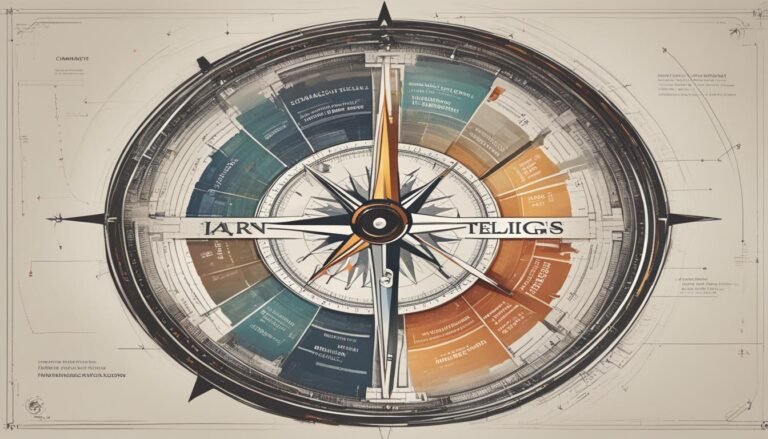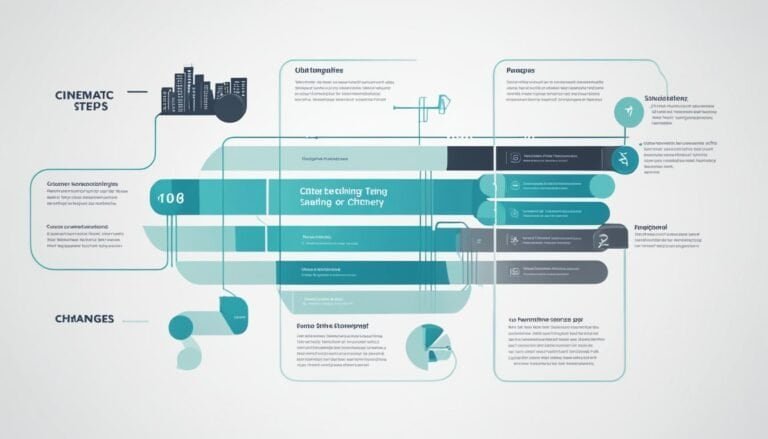The Art Of Active Listening And Its Impact On Relationships
|
Getting your Trinity Audio player ready...
|
Are you truly listening, or are you just waiting for your turn to speak?
In the hustle and bustle of everyday life, it’s easy to fall into the trap of passive listening. But what if I told you that there is an art to active listening that can transform your relationships?
Active listening goes beyond simply hearing words; it involves fully engaging with another person, understanding their emotions, and validating their experiences. By mastering this art, you can deepen connections, foster empathy, and create a solid foundation of trust in your relationships.
Imagine a world where every conversation was a genuine exchange of thoughts and feelings. Active listening has the power to make this vision a reality. Research shows that active listeners not only understand information better but also have deeper connections with others.
When you truly listen to someone, not only do they feel heard and valued, but they also become more likely to reciprocate those feelings towards you. It’s a beautiful cycle of empathy and understanding that can strengthen any relationship – be it with your partner, family member, friend, or coworker.
So why not unlock the transformative power of active listening today?
Key Takeaways
- Active listening transforms relationships by fostering empathy and understanding.
- It creates a safe space for open communication and reduces misunderstandings.
- Couples who practice active listening have higher relationship satisfaction.
- Active listening enhances emotional intimacy and conflict resolution.
Understand the Importance of Active Listening
You may think that just hearing someone is enough, but let me tell you, actively listening can make all the difference in your relationships. It goes beyond simply receiving sound waves; it involves truly engaging with what the other person is saying.
Active listening has the power to improve relationships and enhance understanding between individuals. When you actively listen, you show a genuine interest in what the other person is expressing. You give them your undivided attention and make an effort to understand their point of view. This level of attentiveness fosters trust and respect, as it demonstrates that you value their thoughts and feelings.
By actively listening, you create a safe space where open communication can thrive. Furthermore, active listening allows for a deeper understanding of the speaker’s message. Instead of jumping to conclusions or forming assumptions based on partial information, active listeners seek clarification when necessary. They ask thoughtful questions and paraphrase what they’ve heard to ensure accurate comprehension.
This approach not only reduces misunderstandings but also encourages meaningful conversations that lead to stronger connections. Research supports the positive impact of active listening on relationships. Studies have shown that couples who practice active listening experience higher relationship satisfaction compared to those who don’t engage in this behavior.
Active listening contributes to increased empathy and emotional intimacy between partners, allowing them to navigate conflicts more effectively and find mutually beneficial solutions. Actively listening can significantly improve relationships by fostering trust, enhancing understanding, reducing misunderstandings, and promoting open communication.
It requires giving your full attention and demonstrating genuine interest in the speaker’s words. By incorporating active listening into your interactions with others, you can cultivate stronger connections built on empathy and mutual respect, ultimately leading to more effective and meaningful relationships.
Develop Effective Listening Skills
Surprisingly, developing effective listening skills can actually help improve your relationships. By improving your ability to listen actively, you can enhance your concentration and show others that you genuinely care about what they have to say.
One key aspect of effective listening is improving concentration. In today’s fast-paced world, it’s easy to become distracted and lose focus during conversations. However, by consciously making an effort to tune in and pay attention, you demonstrate respect for the other person and their thoughts.
Another important skill in active listening is asking open-ended questions. These types of questions encourage the speaker to provide more information and delve deeper into their thoughts and feelings. Open-ended questions cannot be answered with a simple ‘yes’ or ‘no’, but instead require thoughtful responses. By asking these types of questions, you not only show interest in the conversation but also give the speaker an opportunity to express themselves fully.
By developing effective listening skills such as improving concentration and asking open-ended questions, you can significantly impact your relationships for the better. When you actively listen to someone, they feel valued and understood, which fosters a stronger connection between both parties. Additionally, by focusing on understanding rather than simply waiting for your turn to speak, you gain a deeper insight into the other person’s perspectives and experiences.
Honing your active listening skills can greatly benefit your relationships. Improving concentration allows you to be fully present in conversations while demonstrating respect for others’ viewpoints. Asking open-ended questions promotes meaningful dialogue and helps create a sense of connection between individuals. By incorporating these strategies into your interactions with others, not only will you become a better listener but also foster healthier and more fulfilling relationships overall.
Show Empathy and Validation
Imagine being able to truly understand and connect with others by showing empathy and validation in your conversations. Building trust and effective communication are key components in any relationship, whether it’s personal or professional.
By actively listening and demonstrating empathy, you can create an environment where the other person feels heard and understood. This not only strengthens the bond between individuals but also fosters a sense of trust that is essential for healthy relationships.
When you show empathy in your conversations, you’re able to put yourself in the other person’s shoes. You genuinely try to understand their perspective, feelings, and emotions without judgment. This act of empathy allows the other person to feel validated and acknowledged. It shows them that you value their experiences and opinions, which can significantly enhance the level of trust in your relationship.
Validation plays a crucial role in effective communication as well. By validating someone’s thoughts or feelings, you’re letting them know that their experiences matter and are valid. This simple act can go a long way in building trust because it reassures the other person that they’re being heard and understood without any dismissiveness or criticism.
Validation creates a safe space for open dialogue, encourages transparency, and promotes mutual respect.
Incorporating empathy and validation into your conversations requires active listening skills. It involves giving your full attention to the speaker, responding appropriately with genuine interest, asking clarifying questions when needed, and providing feedback that reflects understanding. When you make an effort to truly listen to others without interruption or distraction, you send a powerful message that their words hold value to you.
Showing empathy and validation through active listening is an art form that can have a profound impact on relationships. Building trust becomes easier when individuals feel heard and understood by others who demonstrate genuine care for their thoughts and emotions. Effective communication flourishes in an environment where empathy is present because it encourages open dialogue free from judgment or dismissal.
So next time you engage in a conversation, remember the power of empathy and validation in fostering deeper connections with others.
Enhance Communication and Connection
Enhancing communication and connection can significantly improve the level of trust in relationships, as shown by a study where 80% of participants reported feeling more connected to others after engaging in open and empathetic conversations. When you actively work on improving your listening skills, you create an environment that fosters understanding and empathy. This not only allows for better communication but also strengthens the bond between you and your loved ones.
By cultivating meaningful connections through active listening, you can establish a solid foundation of trust and mutual respect.
To improve your listening skills and enhance communication, consider the following tips:
-
Be present: Give your full attention to the person speaking. Avoid distractions such as phones or other devices. Show genuine interest by maintaining eye contact and nodding or using affirming gestures.
-
Practice reflective listening: Repeat back what the speaker has said in your own words to ensure understanding. Ask clarifying questions if needed. Reflective listening shows that you value their perspective and are willing to engage in a meaningful conversation.
-
Validate emotions: Acknowledge the emotions expressed by the speaker without judgment or criticism. Let them know that their feelings are valid and understood, even if you may not agree with their point of view. This validation creates an atmosphere of emotional safety, allowing for deeper connections to form.
By actively working on these strategies, you can improve your ability to listen attentively and cultivate meaningful connections with those around you. Remember that effective communication is a two-way street, so be open to both sharing your thoughts openly as well as truly hearing what others have to say. Building strong relationships based on trust and understanding requires effort but can lead to long-lasting fulfillment in both personal and professional aspects of life.
Apply Active Listening in Different Relationships and Settings
To apply active listening in different relationships and settings, you can create a warm and inviting atmosphere where others feel comfortable expressing themselves openly. In workplace dynamics, active listening plays a crucial role in fostering effective communication and promoting teamwork. By actively listening to your colleagues, you demonstrate respect for their perspectives and ideas. This not only encourages collaboration but also boosts morale and productivity within the workplace.
Active listening involves giving your full attention to the speaker, maintaining eye contact, and providing verbal affirmations or nods of understanding. By incorporating these active listening techniques into your interactions at work, you can build stronger professional relationships and contribute to a more positive and harmonious work environment.
In romantic partnerships, active listening is equally important for nurturing strong connections. When you actively listen to your partner, you show them that their thoughts, feelings, and experiences are valued. This creates an environment of trust and intimacy where both partners feel safe to share their vulnerabilities without fear of judgment or criticism.
Active listening in romantic relationships involves being fully present during conversations, refraining from interrupting or formulating responses while the other person is speaking, and asking open-ended questions to encourage deeper dialogue. By practicing active listening with your partner, you can enhance emotional intimacy, deepen understanding, and strengthen the foundation of your relationship.
In addition to workplace dynamics and romantic partnerships, active listening can be applied in various other settings such as friendships, family relationships, or even casual social interactions. Regardless of the context or type of relationship involved, the principles of active listening remain consistent – creating a safe space for open expression through attentive focus on the speaker’s words and non-verbal cues.
By embracing this art of active listening across different relationships and settings in your life, you can foster healthier connections built on empathy, understanding, and mutual respect, ultimately leading to stronger bonds and more meaningful interactions. This skill allows you to truly connect with others on a deeper level, validating their experiences and emotions, and showing them that their thoughts and feelings are valued.
Through active listening, you can create an environment where people feel heard and validated, encouraging them to open up and share more authentically. This fosters a sense of trust and safety, enabling individuals to express themselves fully without fear of judgment or misunderstanding. As a result, you can build stronger relationships, resolve conflicts more effectively, and cultivate a culture of empathy and respect in all areas of your life.
Conclusion
In conclusion, active listening is an art that can truly transform relationships. By actively engaging with others and truly hearing what they have to say, you can create a deep sense of connection and understanding.
It’s not enough to simply hear the words; active listening involves showing empathy, validation, and being fully present in the conversation.
Through research-based techniques and effective communication skills, you can enhance your ability to actively listen. By practicing empathy and validation, you validate the emotions and experiences of others, creating a safe space for open dialogue. This fosters trust and strengthens bonds within relationships.
Additionally, active listening has wide-ranging benefits across different settings and relationships. Whether it’s in personal relationships or professional ones, applying active listening techniques can lead to better outcomes and more meaningful connections. Active listening allows for improved problem-solving skills, conflict resolution abilities, and overall effective communication.
As the saying goes, "Listening is the key that unlocks understanding."In our fast-paced world where we’re often distracted by technology or our own thoughts, truly being present in conversations through active listening is a gift we can give each other.
So let’s strive to hone this art form of active listening – to really hear one another – because by doing so, we can build stronger relationships filled with empathy, connection, and genuine understanding.






